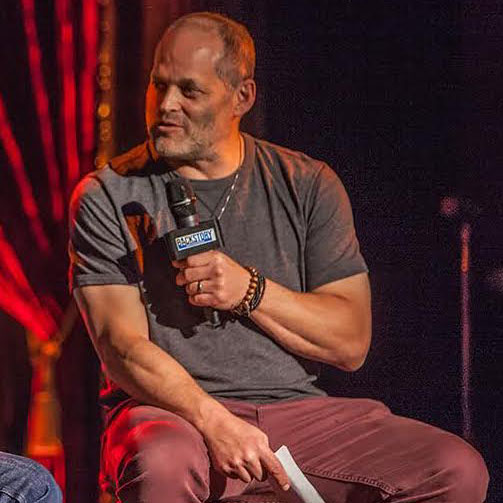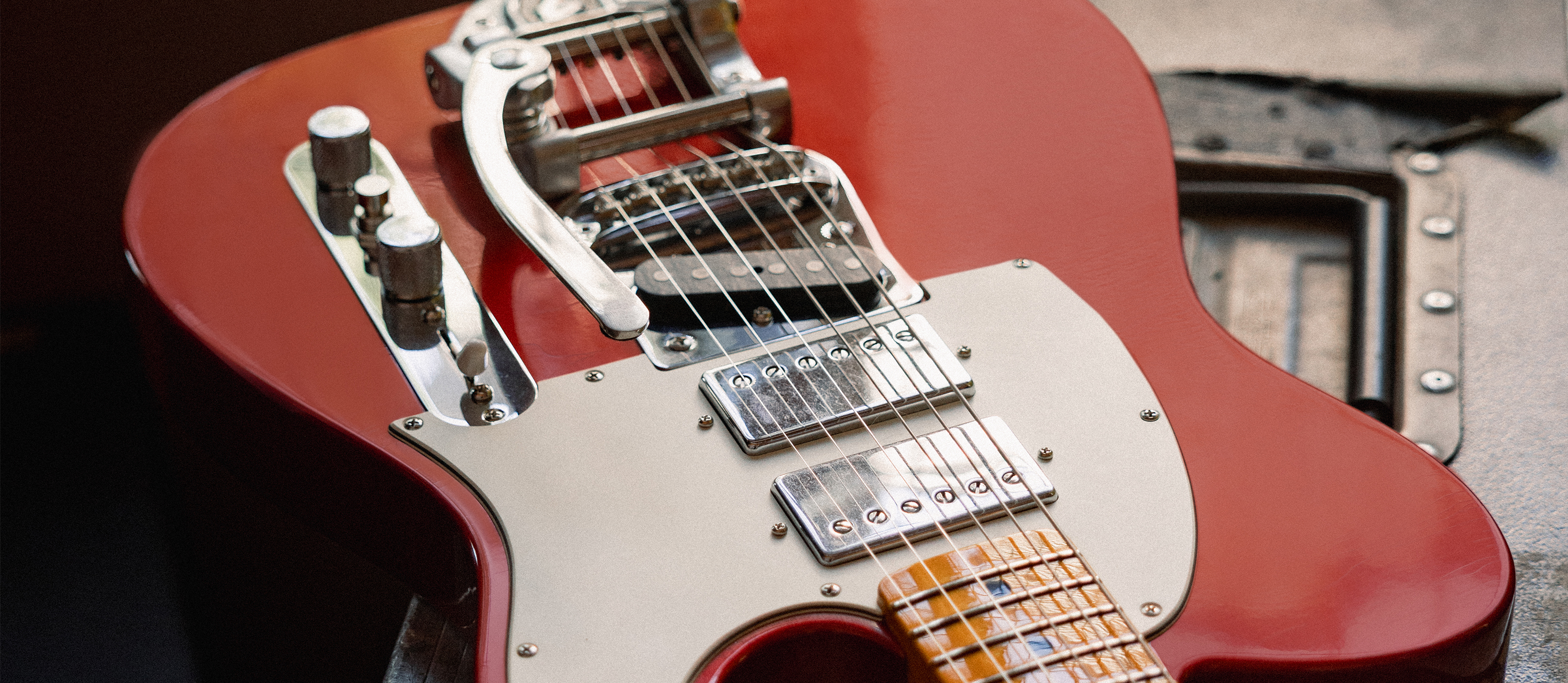"It was like the ‘I've seen the light’ church scene in the 'Blues Brothers' movie.” Ronnie Baker Brooks dedicated his life to the blues on behalf of his father, Lonnie Brooks. The connection runs deep on 'Blues in My DNA'
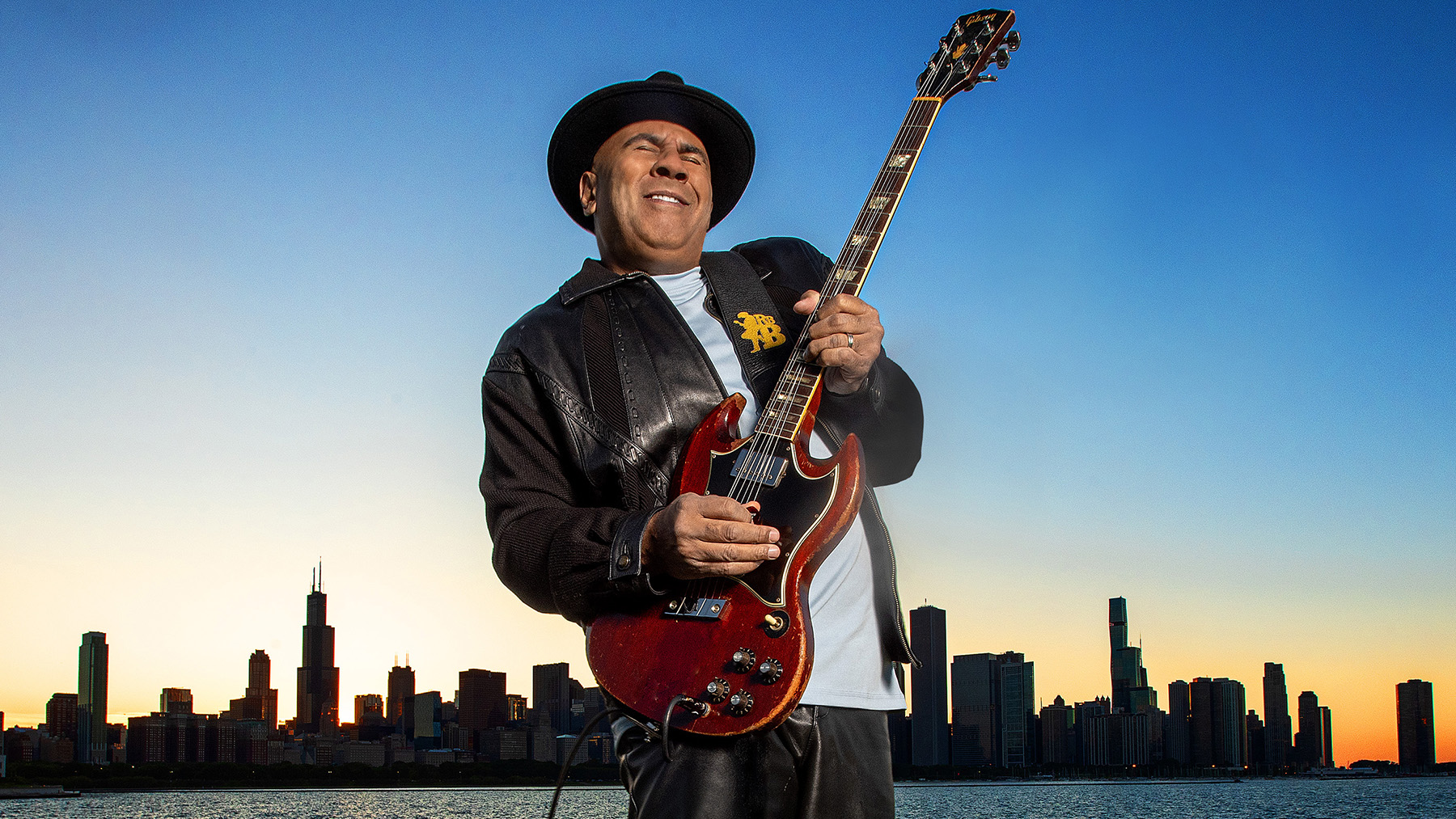
Ronnie Baker Brooks grew up in the blues. His father Lonnie Brooks was a mainstay of the bustling Chicago blues scene from 1960, when he moved there from Louisiana, until 2017, when he passed away at age 83. Ronnie grew up rubbing shoulders with his father’s friends and peers — blues giants like B.B. King, John Lee Hooker, Albert King, Stevie Ray Vaughan, Robert Cray, Buddy Guy and Otis Rush. All of them, he says, offered “both musical and life lessons.”
“I'm not name dropping,” Brooks adds. “I'm just holding them up!”
The appropriately titled Blues In My DNA is Ronnie Baker Brooks’ fifth solo album, and his first on Alligator Records, which was Lonnie’s longtime home. The music is hard-hitting and diverse, hard rocking and soulful, driven by Brook’s cutting leads and incisive riffs.
With this album, Ronnie is staking his claim to a place in the Chicago blues hierarchy. It’s no coincidence that the cover photo shows him standing on the city’s waterfront, where Lonnie posed for the cover of his 1979 Alligator debut, Bayou Lightning — and that he’s holding the same 1967 Gibson SG electric guitar his father sported on that cover.
“It’s the first guitar my father bought me when I was seven years old,” says Brooks. “He used that guitar on several of his early Alligator recordings.”
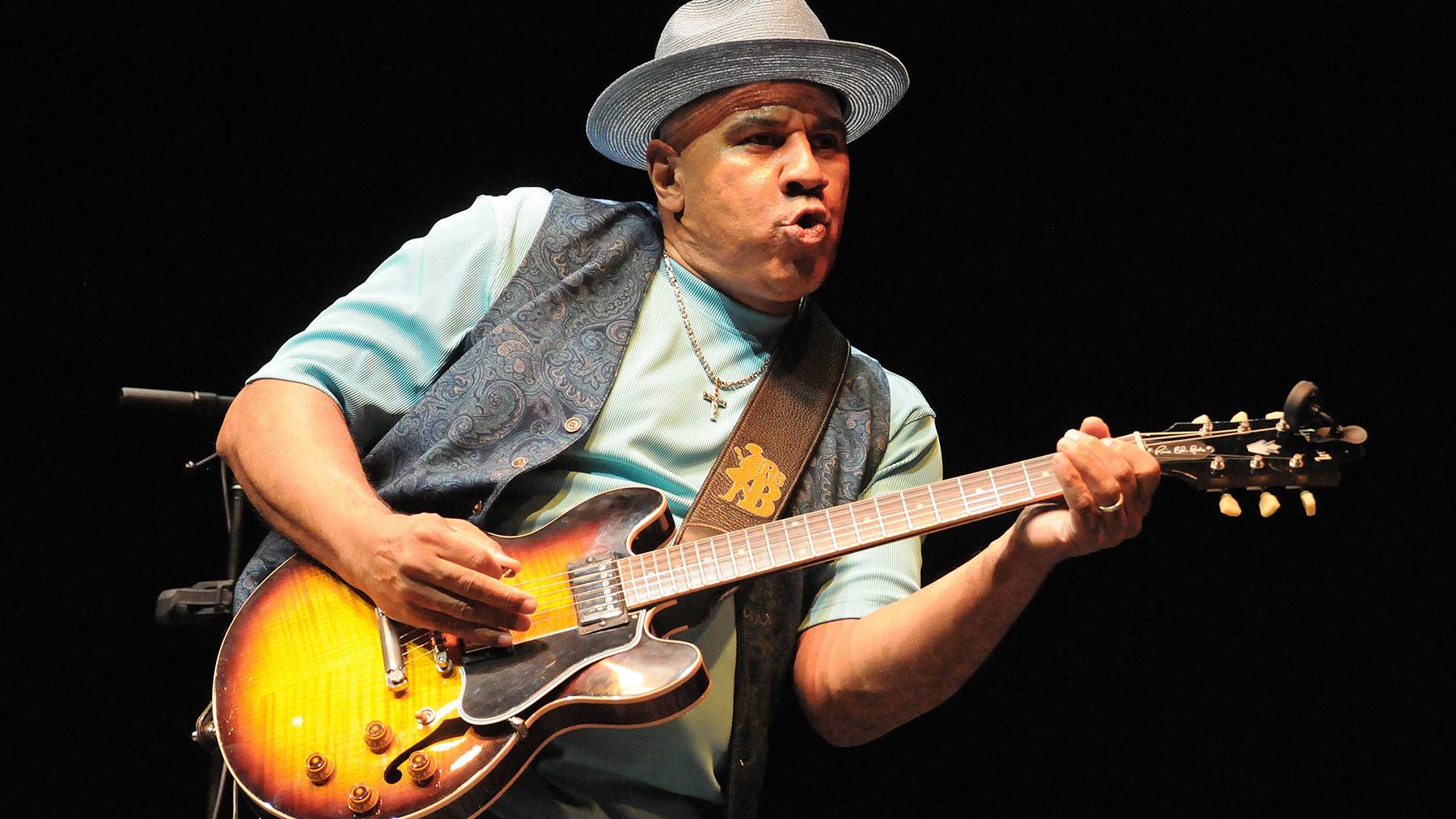
Brooks got his first guitar lessons from his father when he was six and was onstage before he turned 10, though he eventually stopped playing to focus on basketball. At 18, Ronnie was working as his father’s roadie when Albert Collins, the Master of the Telecaster, dropped into Chicago’s legendary Northside club Kingston Mines to jam with the senior Brooks.
“Lonnie and Albert were vibing hard in this incredible jam in front of a packed house,” Brooks says. “I'm standing on the side of the stage, and the hair on my arms stood up and I got goosebumps! My dad and Albert were on fire. I thought I saw fireworks coming from their guitars, and at that moment I knew I wanted to play the blues.
“It was like the ‘I've seen the light’ scene in the church from the Blues Brothers movie. Right then, I told God that if He would keep me healthy, this is what I wanted to do for the rest of my life. Ever since then I've been blessed to play music for a career.”
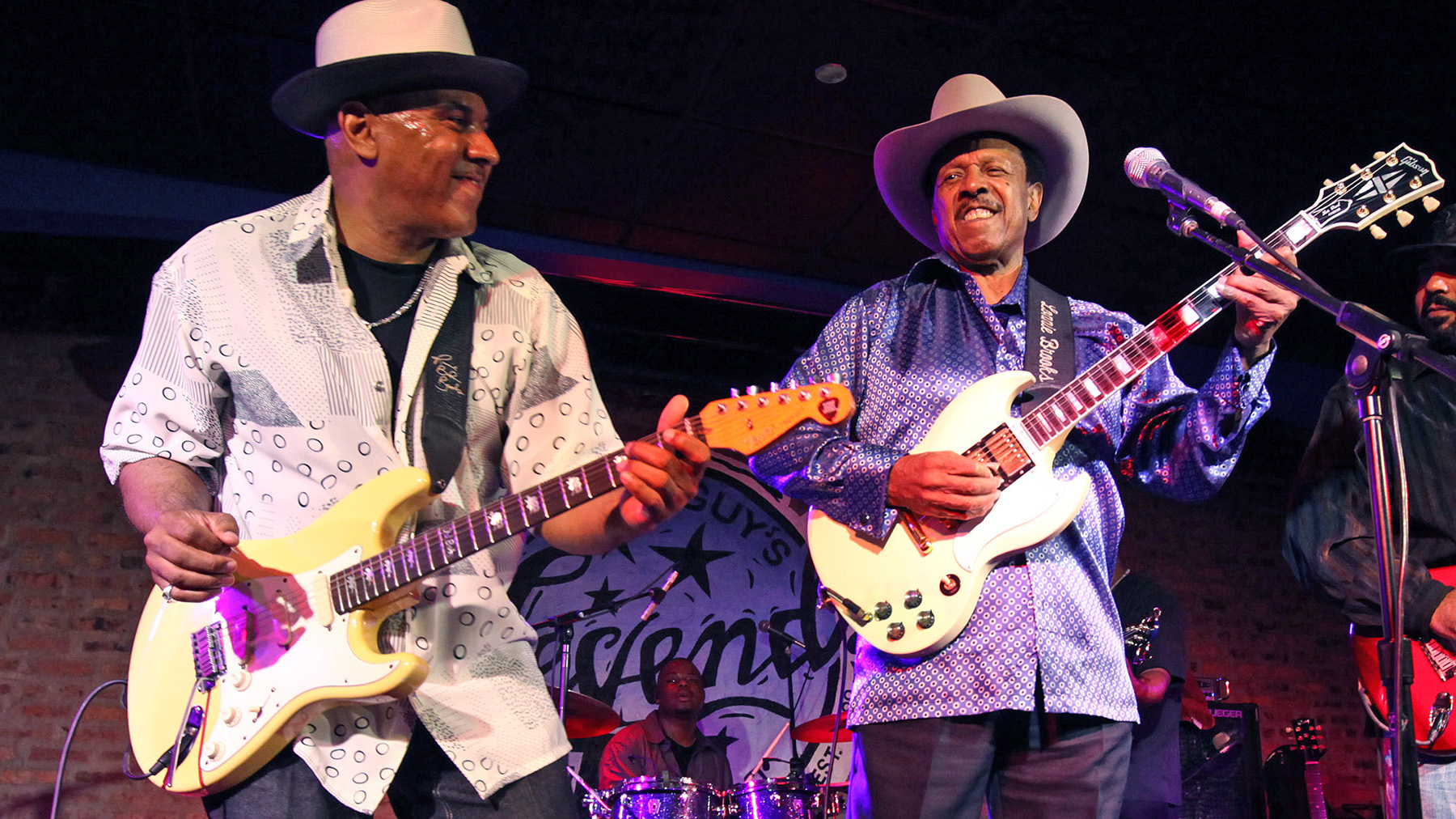
The senior Brooks was thrilled when Ronnie and his brother Wayne both chose to follow in his footsteps, playing rhythm guitar and bass in Lonnie’s band before launching their own solo careers. Still, Ronnie says, their father never forced music on them.
“He wanted all of us to do something we were passionate about,” he says. “When I decided to quit music to play basketball, my father would gig all night Friday, then get up Saturday morning to take me to my basketball game, sit there and watch me play, take me to lunch after the game, then go home and rest up for his gig later that night! I didn't even know I broke his heart until he told me years later when he knew I was serious about playing music again.”
Lonnie’s voice introduces the Blues In My DNA title track, saying “I give you my blessing to keep these blues alive,” before Ronnie rips off a heavy, crunchy guitar riff that launches a deep song that tells his own life story, covering family ties, poverty, racism and the perseverance required to keep pushing forward.
“Like I sing in the song, I’m not complaining, just explaining!” Brooks says. “I’m just trying to tell my story and stay authentic to the blues.”
Get The Pick Newsletter
All the latest guitar news, interviews, lessons, reviews, deals and more, direct to your inbox!
Alan Paul is the author of three books, Texas Flood: The Inside Story of Stevie Ray Vaughan, One Way Way Out: The Inside Story of the Allman Brothers Band – which were both New York Times bestsellers – and Big in China: My Unlikely Adventures Raising a Family, Playing the Blues and Becoming a Star in Beijing, a memoir about raising a family in Beijing and forming a Chinese blues band that toured the nation. He’s been associated with Guitar World for 30 years, serving as Managing Editor from 1991-96. He plays in two bands: Big in China and Friends of the Brothers, with Guitar World’s Andy Aledort.
"This 'Bohemian Rhapsody' will be hard to beat in the years to come! I'm awestruck.” Brian May makes a surprise appearance at Coachella to perform Queen's hit with Benson Boone
“We’re Liverpool boys, and they say Liverpool is the capital of Ireland.” Paul McCartney explains how the Beatles introduced harmonized guitar leads to rock and roll with one remarkable song

